The Image Of Man
Every once in a while, you come across a book that strikes you like lightning; it’s a glorious time to be a reader. A few years ago,  G.K. Chesterton’s The Napoleon of Notting Hill came to me like that. I loved the humor, the dialogue, the surprises, the two starring lunatics; I loved the ending, which was a revelation of the entire book. I was fascinated by what questions the novel raised, and how. I wrote about it, more than once. If my weekends ever free up, I’m going to write a screenplay of The Napoleon of Notting Hill.
G.K. Chesterton’s The Napoleon of Notting Hill came to me like that. I loved the humor, the dialogue, the surprises, the two starring lunatics; I loved the ending, which was a revelation of the entire book. I was fascinated by what questions the novel raised, and how. I wrote about it, more than once. If my weekends ever free up, I’m going to write a screenplay of The Napoleon of Notting Hill.
Still, even books that strike like lightning are eventually subject to cooler analysis. Although I didn’t notice it much at my first reading, Notting Hill has a certain peculiarity: There are almost no women. I don’t mean this the way people usually do, which is that there were women, just not enough or not very important. I mean it literally; if there was a single named female character, or a single sentence spoken by a female, I can’t remember it.
I was unrepresented in The Napoleon of Notting Hill. And yet there I was, enjoying it.
People talk about the need to diversify speculative fiction, about how women and various ethnic groups are underrepresented or excluded in the genre. One writer asserted that “people of color” don’t read speculative fiction because of its lack of diversity.
I don’t object to anyone’s desire to diversify speculative fiction, though I would have a thought or two about the methods. (No quotas.) What I disagree with is the notion that people are unrepresented in stories that do not offer skin-deep reflections of themselves, or that it should be hard to connect with a story that does not have characters like oneself.
This fixation on the male/female divide, or physical diversity (pretty much a matter of pigmentation), can become myopic. People lose sight of the universal humanity that transcends all our natural human differences. If an author has created any character well, giving him or her a sense of life and complexity, then that’s enough for us to connect with. Any character that really seems human is enough like ourselves.
We are not, in any deep sense, “represented” in our stories by specific types of people, but simply by people. Even the alien races of speculative fiction, from Elves to Klingons, are made in our image, sprung wholly from our imaginations and self-knowledge; we are the only rational species we know. C.S. Lewis, criticizing Orwell’s 1984, said that its hero and heroine were not nearly as human as the animal protagonists of Animal Farm. True likeness is made of deeper things.
“People are all the same,” P.J. O’Rourke once declared, “though their circumstances differ terribly.” Authors will frequently fail to capture our circumstances, except in the most general terms; in speculative fiction, that’s pretty much the default. But good authors and good stories capture the sameness, the unchanging humanity that is as consistent as the sun itself. Jealousy and courage were no different when Shakespeare wrote about them in the foreign country of the past; love and hatred were felt the same from the first illiterate bard to the Age of the Computer.
Heroes who show us what we admire, villains who show us what we fear or hate, characters who dream, struggle, fail, hope, give up – all these represent us. Every good story is one thread of our human tapestry spooled out. There are no limitations of appearance or circumstance. It is all us.



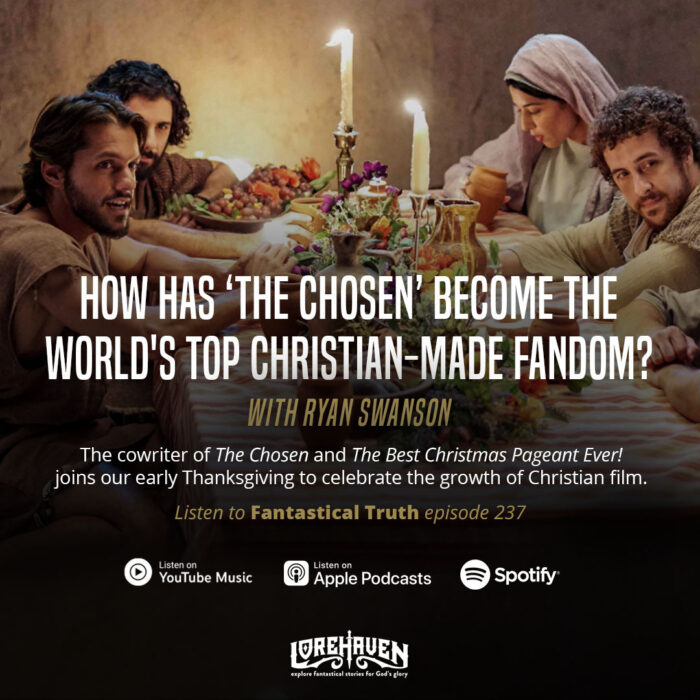
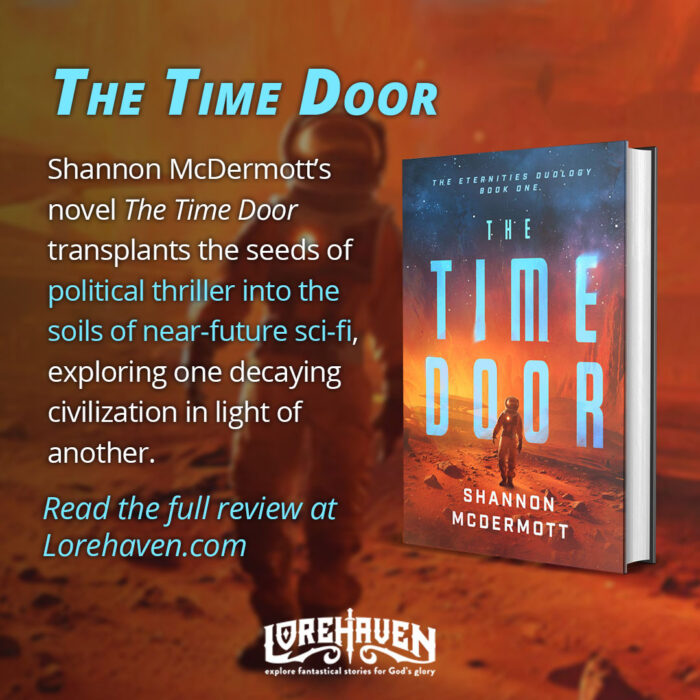



























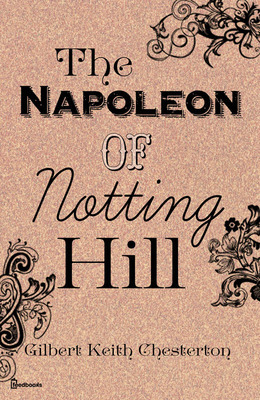

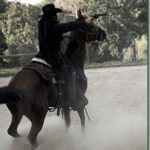

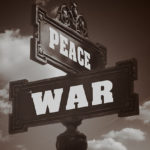
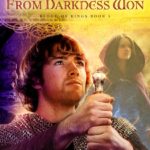




“This fixation on the male/female divide, or physical diversity (pretty much a matter of pigmentation), can become myopic. People lose sight of the universal humanity that transcends all our natural human differences.” Amen to that! Good thoughts. I like seeing diversity in books, because it’s interesting and reflective of the real world we live in, but being fixated on it when it’s such a surface thing is not helpful.
I appreciate the point you’re making here, and I have also read books with exclusively or mostly male casts and felt the same way about them (though my personal favorite of Chesterton’s is THE MAN WHO WAS THURSDAY). However, we have the luxury of being white, first-world females whose existence is widely — if not always perfectly — represented in not just hundreds, but thousands of works of fiction. We find it easier to be magnanimous in enjoying books that don’t explicitly include us, firstly because we’ve been trained to identify with white male protagonists as readily as we do our fellow women, and anyway there are plenty of great white female characters in classic and modern literature so we don’t have to feel left out of the general discourse.
Now imagine reading hundreds of books, all good books after their fashion, with well-drawn characters and compelling stories — BUT not once do you encounter a heroic character who shares your skin/hair/eye colouring, or comes from a similar cultural background, or shares your faith in even the most vague general sense. In fact, if anyone like you appears in those books at all, it is only as an object of pity, or cannon fodder, or at best a one-dimensional villain.
How long do you think it might take you to become frustrated and unhappy with the kind of literature you were reading? And would you be wrong, or selfish, or lacking in empathy, to feel that way? Is it really fair to expect people who don’t fit into the default white middle-class able-bodied protagonist mould to simply suck it up and be content with what they’ve got?
I’m not saying we need some kind of quota system to enforce diversity. I’m saying that as Christians, we should be the first ones to look critically at our fleshly prejudices and short-sighted preconceptions, and strive to write in a way that reflects the Biblical truth that all men and women, from every people and nation and social class and level of physical (or mental) health and ability, are made in the image of God and precious in His sight. We ought to be quick to sympathize with, and read about, and write about, characters who are different from ourselves — not to conform to some worldly standard of open-mindedness or political correctness, and certainly not to downplay the seriousness of sinful behaviour or false religions, but because we sincerely care about other people and want to communicate God’s truth and love to them.
So while I hear you about the value of being able to identify with and learn from characters who are not exactly like us — and I think good writing will always make that possible — I think it’s also important to realize that it’s easier to do that when you don’t have to do it all of the time, and when you can turn to another book that does represent you without much difficulty. It’s a lot harder when every book you read seems to remind you of your own non-existence, your relative unimportance, or the stereotypes about people like yourself.
This is sort of an odd choice to make the point of your essay. I love the book, too; it’s second only to The Ball and the Cross in my list of his favorite works. But it doesn’t have women because it’s probably so masculine as to be hyper-masculine; it’s a paean to war as if it was a boy’s playing with toys.
It’s about how good it is to fiercely love something small, enough to fight and die for it, and how that fighting and dying makes men out of aimless, directionless people. It’s a bit much at times even for guys in the romantic aspects, with Chesterton’s love of the big paradox outrageous even in here. The paradox is one-sided, because dying in medieval battle over a side street isn’t always so glorious. I’d really be interested at hearing your thoughts at length on it, because I’m surprised it would appeal to women at all.
Chesterton is kind of meh that way though. You’re talking about universal humanity, but he’s actually pretty complementarian in his works sometimes.
Like in Manalive. You have Smith telling us about his huge idealistic quest to travel the world in order to see and appreciate all that he has already. To rediscover the things he has. There’s a lot of high ideals and romance. Then at the end of the book, they ask his wife about it.
“Well, at least it isn’t snakes,” she says. “Uncle Harry kept snakes, but his wife wouldn’t allow them at the dinner table.” Smith’s idealistic to the point of self-harm; the book’s about him getting tried for committing crimes against others when he’s doing it against himself. His wife though is practical to the point of insanity. “Oh, it’s just his little quirks.” There was another passage in one of his books that I can’t find, which had the hero talk to his beloved in a huge Chestertonian speech, only to be replied with something like “Lor, how you talk!”
Just a weird example in particular, because there’s a massive male/female divide in his works.
Oh, definitely. But it’s not always bad. At the end of Notting Hill, Adam Wayne says to Auberon Quinn (I’m quoting from memory): “Though we seem to have been opposite in everything, we have been opposite as a man and woman aiming at the same practical thing at the same practical moment. We are the father and mother of the Charter of the Cities.”
Quite apart from any gender implications, this illustrates why Notting Hill fascinated me as it did: There are ideas at work so deep in the story it catches you by surprise. Adam Wayne and Auberon Quinn were lunatics on the opposite ends of a spectrum – Quinn could see only the absurdity of things, and Wayne only the glory – and they played off each other brilliantly.
But at the very end, you see their tragedy: Wayne loves things, but can’t laugh at them, because they are always serious; Auberon laughs at things, but doesn’t love them, because they’re only absurd. Yet the “equal and eternal human being” loves and laughs, can feel both the absurdity and the glory.
In Auberon Quinn and Adam Wayne, Chesterton has separated these two impulses, and exaggerated them just by presenting them in their pure form. But he so distracts you with Auberon’s jokes and Adam’s solemn theatricals, you can’t see exactly what he’s doing until the end.
It’s the same thing (on a larger scale) with patriotism. I was appalled when I first read the slaughter of the last battle. But at the very end, I understood that in Notting Hill, Chesterton presented a microcosm of what happens to every nation: its rise, strength, weakness, triumph, sins, and final demise. Notting Hill’s fall to becoming an empire, and then its destruction, are the strongest case against patriotism. When Auberon asks why men “so extravagantly toil and die” for this, the story has already made his point for him.
And Adam Wayne, throughout the story, throughout all Notting Hill’s ups and downs, does exactly the same thing: He clings to his city. “I have a city. Let it stand or fall.” He takes hold of Notting Hill and doesn’t let go, because he loves it for being “itself and irreplaceable”. That love, that clinging, would not have been as powerful without enduring what it did.
I also have to add, if you’re interested in why the book appealed to me, that its humor and sheer style charmed me from the beginning: “The human race, to which so many of my readers belong, has been playing at children’s games from the beginning, and will probably go on doing so till the end. This is a nuisance for the few people who happen to grow up.”